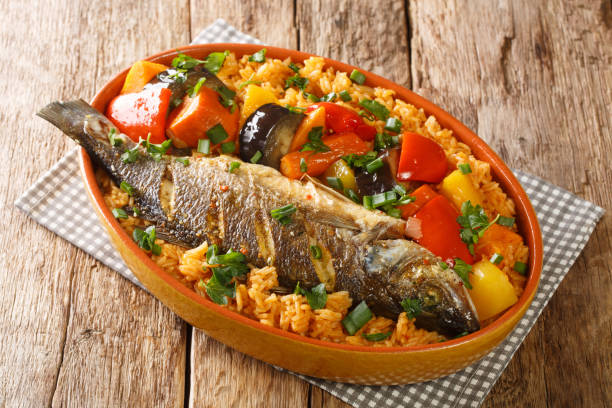Discover the Delights of Senegalese Cuisine: A Journey Through Flavor and Tradition
Senegal, a vibrant African country, is gaining recognition for its rich and flavorful cuisine. This culinary journey will lead us through the unique tastes, innovative techniques, and cultural significance of Senegalese food, providing an engaging and delicious exploration of this often-overlooked cuisine.

Immerse Yourself in Senegalese Food Culture
Senegal’s food is characterized by its depth of flavor and variety. Influences from French, Portuguese, and North African cuisine blend seamlessly with indigenous culinary traditions. Key ingredients include fish, rice, millet, peanuts, and a variety of fruits and vegetables. The Senegalese also have a fondness for spicy food, so expect a generous use of chili peppers.
Traditional Dishes: A Tantalizing Taste Tour
The national dish of Senegal is ‘Thieboudienne’, a hearty fish and rice meal cooked with an assortment of vegetables. ‘Yassa’, another beloved dish, features chicken or fish marinated in a tangy lemon-onion sauce. ‘Maafe’ is a rich peanut stew, often served with beef and vegetables.
The Art of Senegalese Cooking: Techniques and Innovation
Senegalese cooking is as much about the process as it is about the final dish. Traditional cooking methods include grilling, stewing, and fermenting. However, Senegalese chefs are not shy about experimenting and incorporating modern techniques to elevate their cuisine.
Senegalese Beverages: Quench Your Thirst
Senegal’s beverage scene is just as vibrant as its food. ‘Bissap’, a hibiscus tea, is a popular refreshment often served chilled. ‘Gingembre’, a spicy ginger drink, is loved for its fiery kick. For those with a sweet tooth, ‘Bouye’, a creamy drink made from the fruit of the baobab tree, is a must-try.
The Social Significance of Food in Senegal
In Senegal, food is much more than sustenance. It is a means of social connection, a way of expressing hospitality, and a reflection of cultural identity. Meals are often communal, served from a single large dish, symbolizing unity and shared responsibility.
- In Senegal, ‘Teranga’ is a deeply ingrained cultural value that translates to ‘hospitality.’ Offering food is a key expression of Teranga.
- The Senegalese take their tea very seriously. The traditional tea ceremony, ‘Ataya’, is a social event that can last for hours.
- ‘Ngalakh’, a sweet millet porridge, is traditionally prepared during Easter. It is a dish of celebration and gratitude.
End your culinary journey with a renewed appreciation for the richness and diversity of Senegalese cuisine. The blend of flavors, the warmth of the people, and the cultural significance of food in Senegal all combine to create a culinary experience that goes beyond the plate. So, next time you’re looking for a new culinary adventure, consider diving into the world of Senegalese cuisine.




